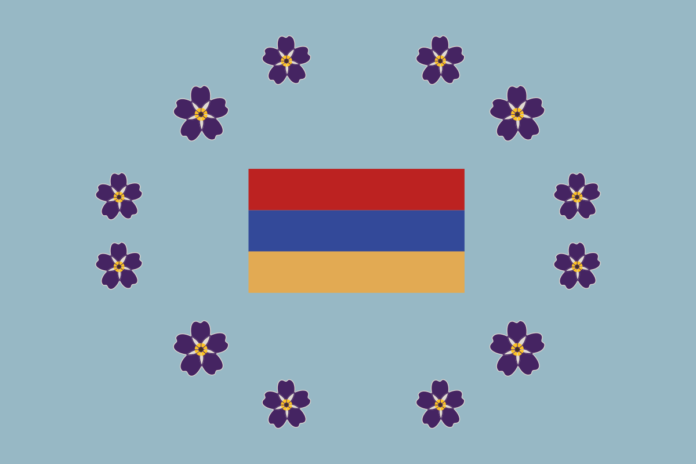Students share what the day represents to them and how they acknowledge it
By ALINA ISSAKHANIAN — features@theaggie.org
Content Warning: This article contains descriptions of violence which some readers may find disturbing.
April 24, 2022 marks the 107th anniversary of the Armenian Genocide. For many, including first-year international relations major Ani Jamhotchian, it is a day of remembrance, grief and working for justice.
“Armenian Genocide Remembrance Day is a day to honor those who were lost during the genocide, remember the hard work we as a people have put into creating our thriving communities, and continue to fight against those who try to conceal the truth of what happened to our ancestors,” Jamgotchian said.
To remember the day, many Armenians and those who support the day’s recognition, join marches, hold vigils and spread their knowledge of the genocide. Leah Tahmassian, a second-year political science major and the social media chair of UC Davis’s Armenian Students Association, shared how she honors the day.
“I usually attend a memorial or march for justice,” Tahmassian said. “I also posted about it on my Instagram as a reminder for my friends and family. Remembering the genocide is not only important — it is essential in order for Armenian heritage to survive.”
According to the New York Times, before the year 1915, there were two million Armenians in the Ottoman Empire, but by the year 1922, there were fewer than 400,000. Around 1.5 million Armenians were either killed or forcibly removed from the empire during that time, as well as more people not of Armenian ethnicity in the Ottoman Empire, including Christian minorities, like Greeks and Assyrians.
Elisa Gevorgian, a first-year biology major, said that people march to the Turkish Consulate in Los Angeles every year on April 24 to remind people of the genocide and encourage the U.S. to do more to acknowledge it’s impact.
“To remember the day and fight for justice, we go to the March For Justice in front of the Turkish consulate,” Gevorgian said. “It is important so that something like this will not be as likely to happen again.”
While Armenian Genocide Remembrance Day is acknowledged by the state of California, the U.S. does not recognize it federally. In 2019, the U.S. legislature passed a resolution officially recognizing the massacres that took place as a genocide, but first-year mechanical engineering major Diana Jabagchourian said that she believes the U.S. should do more to support the Armenian community.
“I believe that the Armenian people will never heal completely,” Jabagchourian said. “I don’t believe that enough has been done.”
Tahmassian said that though more could be done, recognizing the acts of 1915 as a genocide is a strong symbol by the U.S.
She also said that on Armenian Genocide Remembrance Day and throughout the year, individuals can support Armenian communities by educating themselves on the history of the genocide and supporting the communities around them.
“People need to recognize the pain that Armenians have gone through in order to better understand the Armenians in their life, and bring them to a safer state of mind,” Tahmassian said. “Armenians cannot do this alone. We need the general public to come out and help us since without them we do not have the numbers we need for global recognition.”
Written by: Alina Issakhanian — features@theaggie.org




